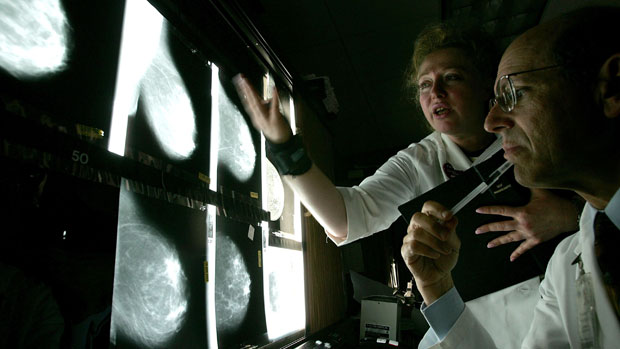NHS accused of denying women lifesaving breast cancer drug
'Bureaucratic inertia' stopping thousands of patients from receiving 43p-a-day medication, says charity

A free daily email with the biggest news stories of the day – and the best features from TheWeek.com
You are now subscribed
Your newsletter sign-up was successful
A lifesaving and inexpensive breast cancer drug is being denied to thousands of patients, claims a leading charity.
"Women's lives are needlessly being put at risk," says Breast Cancer Now chief executive Baroness Delyth Morgan.
The drug, bisphosphonate, which costs 43p a day, is normally used to treat osteoporosis but has also proven effective at stopping breast cancer from spreading in post-menopausal women.
The Week
Escape your echo chamber. Get the facts behind the news, plus analysis from multiple perspectives.

Sign up for The Week's Free Newsletters
From our morning news briefing to a weekly Good News Newsletter, get the best of The Week delivered directly to your inbox.
From our morning news briefing to a weekly Good News Newsletter, get the best of The Week delivered directly to your inbox.
"These are cheap and widely available drugs and the overwhelming evidence of their ability to save lives should have changed practice by now," Morgan added.
Breast Cancer Now blamed confusion over who should pay for the drug for the hold-up, which it described as "bureaucratic inertia", Sky News reports.
The charity also called for clear national guidance on funding, arguing that as research showed the drug could prevent one in ten breast cancer deaths, the NHS would save money in the long-term as bone density scans would not be needed and fewer patients would go on to develop secondary breast cancer.
Professor Ian Smith, the chairman of the Breast Cancer Clinical Reference Group, said it was "deeply concerning" that such an inexpensive treatment was not being made available to all who could benefit.
A free daily email with the biggest news stories of the day – and the best features from TheWeek.com
"In order to deliver the best quality breast cancer care to UK patients, the introduction of these drugs for all eligible women must now be our top priority," he said.
NHS England said funding decisions on the drug were currently made on a local level, but it was awaiting new advice from the National Institute for Health and Care Excellence.
-
 Political cartoons for February 14
Political cartoons for February 14Cartoons Saturday's political cartoons include a Valentine's grift, Hillary on the hook, and more
-
 Tourangelle-style pork with prunes recipe
Tourangelle-style pork with prunes recipeThe Week Recommends This traditional, rustic dish is a French classic
-
 The Epstein files: glimpses of a deeply disturbing world
The Epstein files: glimpses of a deeply disturbing worldIn the Spotlight Trove of released documents paint a picture of depravity and privilege in which men hold the cards, and women are powerless or peripheral
-
 A real head scratcher: how scabies returned to the UK
A real head scratcher: how scabies returned to the UKThe Explainer The ‘Victorian-era’ condition is on the rise in the UK, and experts aren’t sure why
-
 How dangerous is the ‘K’ strain super-flu?
How dangerous is the ‘K’ strain super-flu?The Explainer Surge in cases of new variant H3N2 flu in UK and around the world
-
 The ‘menopause gold rush’
The ‘menopause gold rush’Under the Radar Women vulnerable to misinformation and marketing of ‘unregulated’ products
-
 How the care industry came to rely on migrant workers
How the care industry came to rely on migrant workersThe Explainer Government crackdown on recruiting workers abroad risks deepening care sector crisis, industry leaders warn
-
 Could medics' misgivings spell the end of the assisted dying bill?
Could medics' misgivings spell the end of the assisted dying bill?Today's Big Question The Royal College of Psychiatrists has identified 'serious concerns' with the landmark bill – and MPs are taking notice
-
 Washwood Heath: Birmingham's pioneering neighbourhood health service
Washwood Heath: Birmingham's pioneering neighbourhood health serviceIn the Spotlight NHS England chair says there is a 'really good argument this is the model for the future'
-
 The UK's first legal drug consumption room
The UK's first legal drug consumption roomThe Explainer 'Potentially transformative moment in UK drugs policy' as The Thistle opens in Glasgow
-
 How can the UK solve the adult social care crisis?
How can the UK solve the adult social care crisis?Today's Big Question New commission announced to turn our buckling care sector around: yet more delay or finally a way forward?